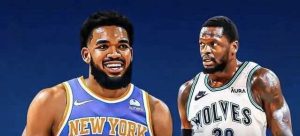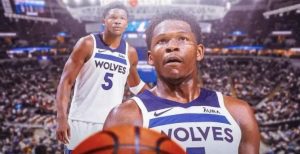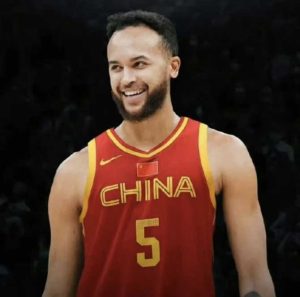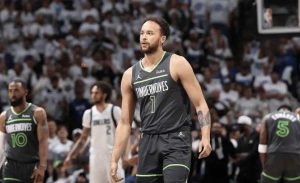This season, the Minnesota Timberwolves have been nothing short of a disappointment. A championship-worthy roster was torn apart by ownership decisions. Last year, the Wolves made it to the Western Conference Finals, narrowly losing to Luka Dončić’s Dallas Mavericks. Despite the loss, their twin-tower lineup held its ground and avoided a sweep. However, the offseason brought tough financial decisions. Faced with the looming salaries of Karl-Anthony Towns, Anthony Edwards, and Rudy Gobert, the cost-conscious ownership decided to trim payroll.

The solution? Trading Towns to the New York Knicks in exchange for All-Star forward Julius Randle and role player Donte DiVincenzo. What initially seemed like a bold move has turned into a glaring mistake. The new additions have fit into coach Chris Finch’s system, with Randle even delivering a buzzer-beater to beat the Suns. Meanwhile, DiVincenzo has played a critical role, averaging 8.9 points, 2.9 rebounds, and 3.3 assists per game, despite shooting just 35.6%. Yet, the front office still views him as untouchable.
This revamped roster has created more problems than solutions. Randle and Gobert’s overlapping skill sets have hurt offensive spacing, as neither player provides reliable shooting beyond the arc. Opponents have adjusted their defensive strategies, and the Wolves now find themselves sitting at 9-10, 11th in the Western Conference standings.
Star player Anthony Edwards hasn’t shied away from voicing his frustrations. In a recent interview, he criticized the team’s inability to handle adversity, calling their performances amateurish. However, Edwards notably refrained from directly blaming the new players.

According to team reporter Chris Hine, Edwards believes the Wolves’ biggest problem is a lack of communication. He pointed to the offseason departure of Kyle “Li” Anderson, a Chinese player who served as a vocal leader and a unifying force for the team. Anderson’s absence has left a noticeable void, and the team’s culture and cohesion have suffered as a result.
Now with the Golden State Warriors, Anderson signed a three-year, $27 million deal in free agency. While the contract wasn’t the biggest, it offered a unique challenge. Known for his precise timing and court vision, Anderson now has to adapt to Steve Kerr’s fast-paced system, which demands quicker decision-making and improved three-point shooting to complement Stephen Curry’s floor-spacing.

Although Anderson’s playmaking abilities remain solid, his impact on the Warriors has been underwhelming so far. The team’s deep rotation hides individual flaws, but recent struggles—like a four-game losing streak—have exposed their offensive issues. Kerr has even started giving more minutes to rookie Brandin Podziemski over veterans like Curry in certain stretches.
In the locker room, Anderson has tried to assume a leadership role as a communicator, but he needs to be careful not to overshadow Curry’s authority. Leadership dynamics are delicate in Golden State, and Anderson faces the dual challenge of improving his on-court performance while navigating team politics.

For more updates and analysis, visit Daily Newspapers.
